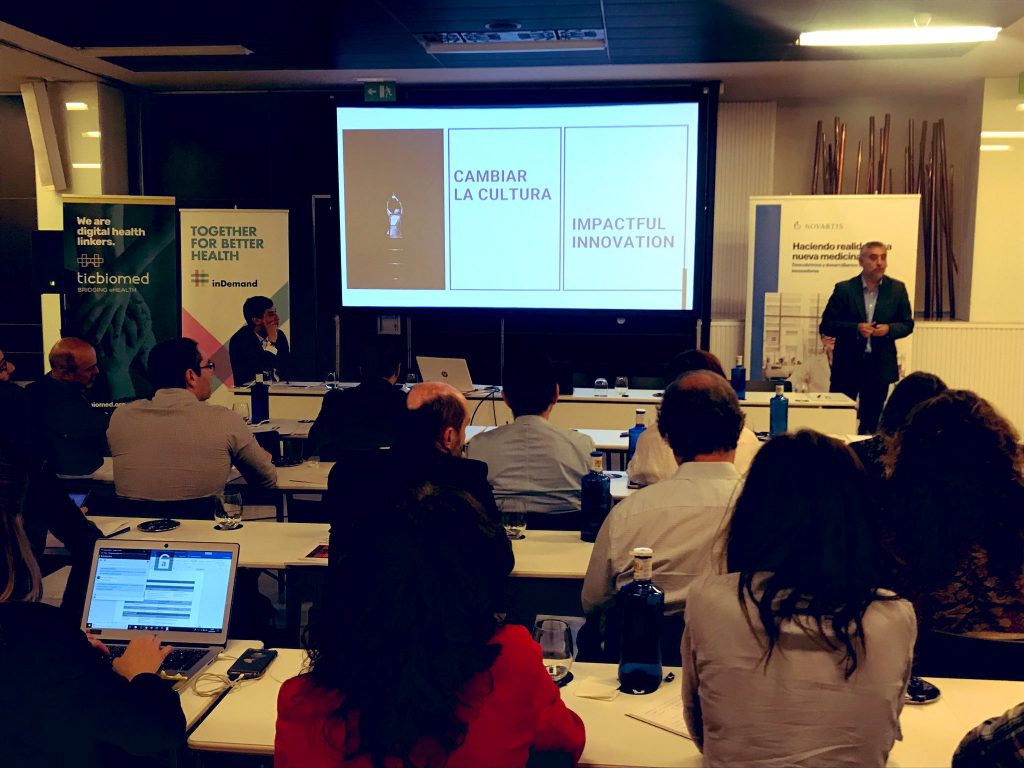nuestra
newsletter
Insights towards impactful innovation on healthcare

“Innovation without adoption is money for nothing”. This is one mantra at Ticbiomed, and also one of the topics discussed in Madrid in an event attended by healthcare innovation managers.
There we exchanged views on how to maximize the impact of innovation within healthcare organizations, and how to leverage existing funding instruments to solve unmet healthcare needs coming from the demand side, instead of the “technology-push”.
Below are the main conclusions of the exchange – 11 key points that are meant to be the beginning of an open dialogue with the ecosystem.
Some insights towards impactful innovation on healthcare
1. There’s a lack of incentives for healthcare professionals to become the protagonists in innovation and, therefore, to retain the most innovative profiles within healthcare organisations. Besides, the “valley of death” of many pilots lets the professionals down because of the lack of implementation.
2. Targeted funding for healthcare organisations to carry out innovation projects is scarce.
3. There’s not enough coordination between the agents that intervene in the generation of knowledge/identification of needs, the IT developers and those involved in the adoption of new products. The available funding mechanisms do not encourage the coordination among them.
4. The current drive for innovation focuses on attractive pilots which raise a lot of public funding, but do not favour adoption. This limits the sustainability of the pilots, and makes R&D&I spending inefficient (pilotitis).
5. Without adoption, innovation has no impact.
6. A way to increase the possibilities of adoption is to first define the challenges and priorities, and seek the approval of the healthcare organization’s management. The idea is to boost commitment towards adoption, and avoid the external ‘technology-push’.
7. There are external sources of funding, such as regional Structural Funds, that can be leveraged to test innovation within healthcare organizations. For example, the demand-driven co-creation approach proposed in the inDemand project.
8. Before starting an innovative project, it should be clear what makes the pilot successful and what will happen if success is achieved. If it is left until the end, probably there will not be any adoption.
9. We need to change the way we adopt innovation within the National Health System. The innovation units should play a more important part in the acquisition of innovation in their organizations.
Access to clinical data, interoperability and the integration of new solutions in the clinical history are great obstacles to adoption – at hospital, regional and, even more noticeably, at national level.
10. Lessons learned and good practices should be systematically shared to favour the culture of innovation within healthcare organizations. For example, the regional healthcare service provider of the Region of Murcia in Spain (Servicio Murciano de Salud) grants a professional career certificate to those healthcare professionals who propose a challenge in the inDemand project. This recognition is formally given by the regional ministry at a public event.
11. It is time to take the initiative and generate projects based on real challenges, promoted from the demand-side, that have an impact. The future Horizon Europe calls to promote Artificial Intelligence are an opportunity for innovation managers to define projects based on real healthcare needs.
The event name was “Challenges and opportunities in the adoption and funding of innovation in healthcare”, and was organized by Ticbiomed, ITEMAS (Spanish network of healthcare innovation units), SERMAS (public healthcare provider of Madrid region), inDemand (an EU project coordinated by us) and Novartis.
***
Are you interested in digital transformation in healthcare? Subscribe to our newsletter in English.
Comparte:
